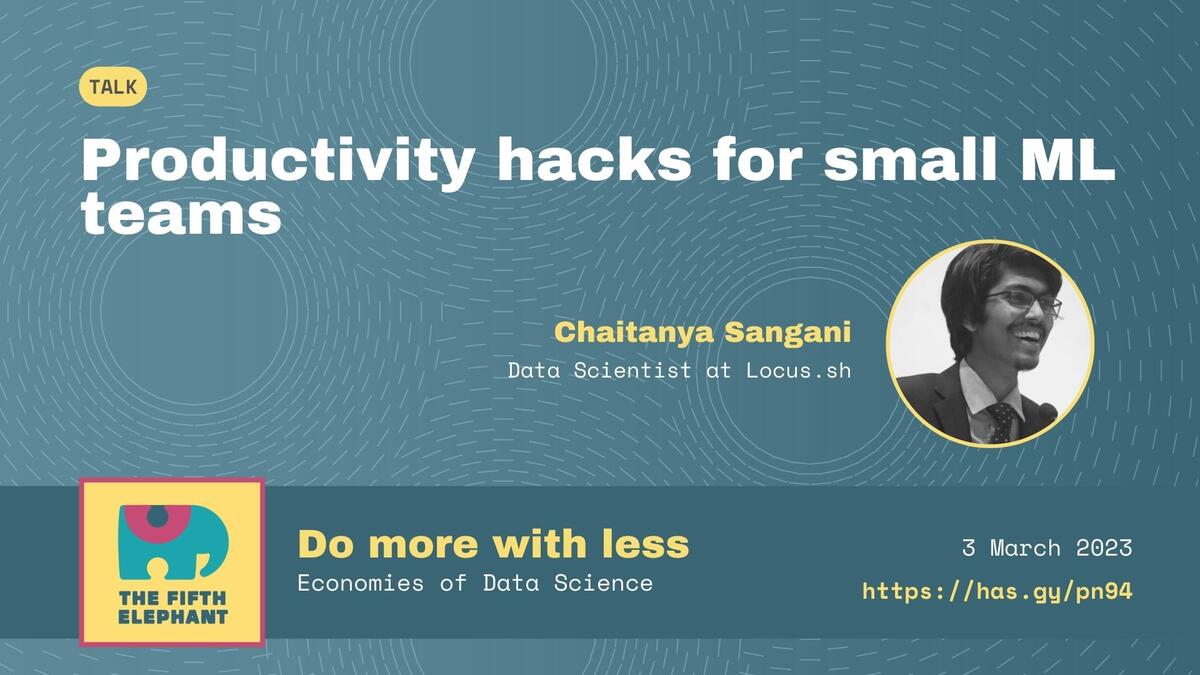
Feb 2023
6 Mon
7 Tue
8 Wed
9 Thu
10 Fri 04:00 PM – 05:15 PM IST
11 Sat
12 Sun
Mar 2023
27 Mon
28 Tue
1 Wed
2 Thu
3 Fri 04:00 PM – 05:00 PM IST
4 Sat
5 Sun
Mar 2023
6 Mon
7 Tue
8 Wed
9 Thu
10 Fri 04:30 PM – 06:00 PM IST
11 Sat
12 Sun
Accepting submissions
Not accepting submissions
How data science teams measure the performance of a model?
How businesses evaluate the impact of the ML models?
How is Observability implemented in your organization?
What are your infrastructure costs?
What has been the customer feedback?
How are you measuring and improving customer experience?
Preference will be given to case study talks, and talks that have practical relevance for practitioners.
|
SR
Saurav Raj Economies of Machine Learning systemsAbstract Machine Learning (ML) in production is complex due to higher operation costs. For a large-scale serving, the ML-based use cases require an infrastructure of powerful CPUs and GPUs that contributes significantly to an organization’s OpEx. In this session, we explore the ways of reducing the cost of doing ML and the factors that direct our preference for one ML solution over another. By an… more
|
|
CS
Chaitanya Sangani Productivity Hacks for small ML teamsWhat is the problem? For an ML team, “small” usually means having limited resources, manpower, and budget compared to larger teams. While small teams can be more agile, collaborative and focused, overreliance on one or a few individuals, low work reproducibility affects and no standardisation in code development affects the team’s performance. more
|
Hosted by